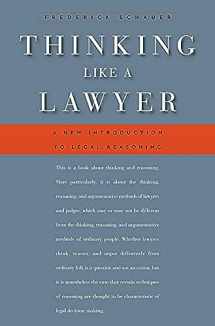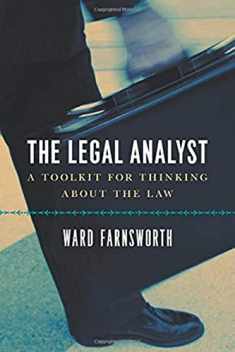
Thinking Like a Lawyer: A New Introduction to Legal Reasoning
Book details
Summary
Description
This primer on legal reasoning is aimed at law students and upper-level undergraduates. But it is also an original exposition of basic legal concepts that scholars and lawyers will find stimulating. It covers such topics as rules, precedent, authority, analogical reasoning, the common law, statutory interpretation, legal realism, judicial opinions, legal facts, and burden of proof. In addressing the question whether legal reasoning is distinctive, Frederick Schauer emphasizes the formality and rule-dependence of law. When taking the words of a statute seriously, when following a rule even when it does not produce the best result, when treating the fact of a past decision as a reason for making the same decision again, or when relying on authoritative sources, the law embodies values other than simply that of making the best decision for the particular occasion or dispute. In thus pursuing goals of stability, predictability, and constraint on the idiosyncrasies of individual decision-makers, the law employs forms of reasoning that may not be unique to it but are far more dominant in legal decision-making than elsewhere. Schauer’s analysis of what makes legal reasoning special will be a valuable guide for students while also presenting a challenge to a wide range of current academic theories.


We would LOVE it if you could help us and other readers by reviewing the book
Book review





